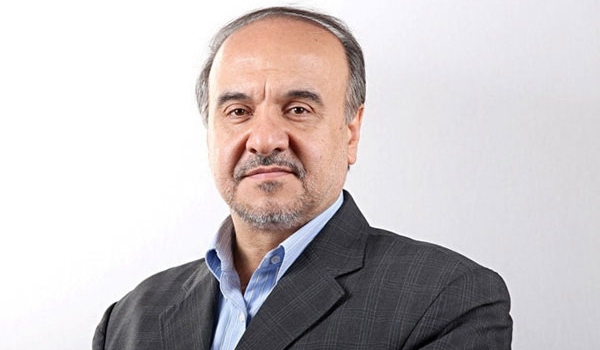 head of Iran's Cultural Heritage, Handicrafts and Tourism Organization, Masoud Soltanifar[/caption]
head of Iran's Cultural Heritage, Handicrafts and Tourism Organization, Masoud Soltanifar[/caption]Tehran, March 13, IRNA �The Islamic Iran is believed to have rich potential to become a Halal touristic hub and attract millions of Muslims to visit the country annually.
Halal tourism is considered as a new branch of tourism industry by the World Tourism Organization that provides Muslims with special recreational and touristic programs.
That means Muslims who are interested in observing their religious rites during their vacations, they can, for example, go to Halal restaurants or stay in hotels where no alcoholic beverages are served.
Also, only-men or only-women swimming pools and praying facilities are provided, while prayer times are announced on a regular basis.
Meanwhile, most Muslim tourists would like to visit religious sites during their vacations, a chance that is abundantly available in Iran.
Malaysia and Turkey are two Muslim countries that are forerunners in Halal tourism.
Three decades ago, Turkey was an underdeveloped country hit by a bankrupt economy and suffered from bribery and administrative corruption.
Having no oil or gas resources, Ankara made bold decisions in privatization of many sectors and creation of backgrounds for tourism while it enjoyed rich resources of Islamic heritage. Now it earns more than $36 billion from tourism industry, which is among the highest in the world.
The Islamic Iran is also a country rich in Islamic and historic cultural heritage and can turn into an efficient tourist hub if proper tourist-oriented plans are implemented. However, Tehran has so far paid little attention to tourism industry and its potential income, partly because the country is rich in oil and gas resources.
Fortunately, a new trend in tourism has started since some 14 years ago, while foreign diplomacy could be a determinant factor in the flourishing of the industry.
With coming to power of the government of moderation of President Hassan Rouhani and a change in the diplomatic discourse in foreign policy, tourism industry has been revived so much so that western media are increasingly reporting on the current booming of the industry. They believe that easing political tensions in Iran�s relations with the international community is the current government�s approach toward tourist attractions.
The latest statistics by the WTO indicate that the number of foreign tourists who visited Iran in 2013 was 24 percent more than that in the previous year. The related figure in 2014 is definitely higher, though no statistics has been released so far.
Despite such a growth, tourism still has a trivial share of 2.2 percent in Iran�s gross national product. WTO is hoping that the trend would continue to increase annually by 5.7 percent till 2024.
Recently travelled to Iran, Secretary-General of the United Nations World Tourism Organization (UNWTO) Taleb Rifai has reportedly said that Iran is �a fantastically rich country, when it comes to cultural heritage, one of the richest civilizations mankind has ever seen.�
He has also noted that Iranians face some challenges, especially in rebuilding their image and how they appeal to others, and welcomed moves to introduce visas on arrival for around 27 countries. These are issues that are fortunately well taken care of by the related authorities of the present administration.
Iran is believed to have rich potentials in many of historical, therapeutic, nutrient, sport and other branches of tourism industry and the only thing that is needed is a scrupulous planning to be meticulously executed by the related authorities.
Meanwhile, the earnings from tourism sector in the next Iranian year�s budget is estimated to be Rls. 4,800 billion, which is very small compared to the overall country�s budget of Rls. 2,224,000 billion. A primary element that can be determinant in materializing the targets of the planned resistance economy and reducing dependence on oil income is proper utilization of tourism industry.
Head of the Organization for Cultural Heritage, Handicrafts and Tourism, Masoud Soltani-far has said that Iran is earnestly planning to promote Halal tourism.
He underlined that many principles of Halal tourism, including serving halal meat in airplanes, hotels and restaurants, and prohibition of serving alcoholic beverages in such places, are already observed in Iran. He believes if Iran provides more athletic facilities for Muslim women, then Iran would be an ideal touristic destination for Muslims from all over the world.
Presently, the Islamic Iran has all the chances to enter tourism industry with its extraordinary potential in the religious, therapeutic, historical and nature-wandering attractions.
The prevailing chaos gripping the regional countries in conditions that peace and stability reins in Iran, doubles the country�s potential to become an outstanding Halal touristic hub while it can also absorb tourists of other regional Islamic countries that are currently in turmoil.
By IRNA










